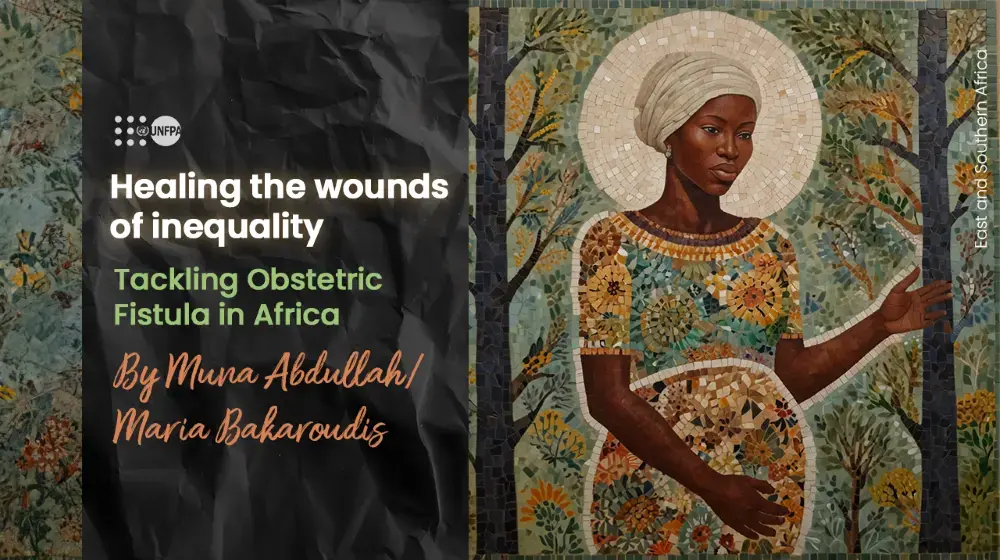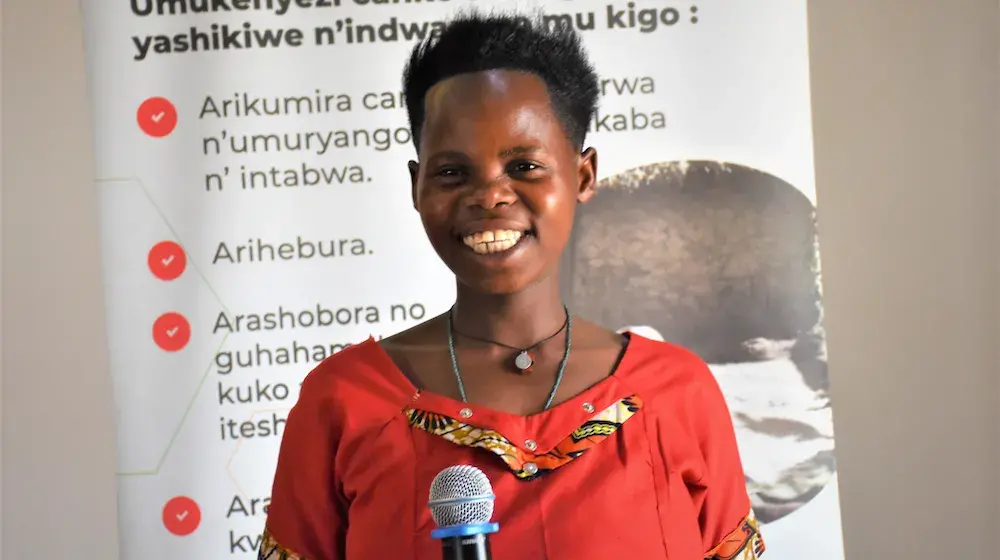This day marks the very first International Day to End Obstetric Fistula, which was designated by the UN General Assembly in December 2012. The year 2013 also marks the tenth Anniversary of the Campaign to End Fistula, launched by UNFPA and its partners. This day will be used to reflect on the progress made over the last decade and raise awareness and generate new political and financial support to accelerate the efforts to address this severely neglected health and human rights tragedy.
Rationale
Everyday almost 800 women die from pregnancy-related complications. Almost half of these deaths occur in sub-Saharan Africa. For every woman that dies, 20 or more are injured or disabled. One of the most serious injuries of childbearing is obstetric fistula, which is caused by prolonged or obstructed labour in the absence of adequate emergency obstetric care.
A fistula is a hole in the birth canal created by prolonged pressure of the baby’s head against the pelvis. A woman with a fistula will continue to leak urine and/or faeces uncontrollably for the rest of her life - unless she is repaired by a trained health care provider. The consequence of this injury often includes ostracism and exclusion. Some women are even abandoned by their husbands and excluded from basic interactions with their families and communities, such as prayer and social gatherings. Moreover, their social isolation makes it extremely difficult to maintain a source of income or support, worsening their poverty and magnifying their suffering.
Obstetric fistula has virtually been eliminated in industrialized nations, but in the developing world it is estimated that 2-3 million women and girls are living with the condition and more than 50,000 new case develop each year. However, obstetric fistula is preventable and, in most cases, can be surgically repaired.
| COUNTRY | EVENTS |
DATE
|
LOCATION |
|---|---|---|---|
| Burundi | |||
|
25 May | National | |
|
|||
| Democratic Republic of Congo | |||
|
Kinshasa, Goma, Bukavu, Lubumbashi et Bandundu | ||
|
Kinshasa | ||
|
Goma, Lubumbashi et Bandundu | ||
|
Lubumbashi | ||
|
Kinshasa et Goma | ||
|
Kinshasa | ||
|
Bandundu | ||
|
Bandundu | ||
|
Kinshasa | ||
|
Dans les zones de Santé de Goma | ||
| Eritrea | |||
|
14 May | Mendefara Hospital | |
| Ethiopia | |||
|
23 and 25 May | National | |
|
23 and 24 May | National | |
|
23 May- 7 June | North Gondar zone | |
|
7 June | Gondar University Fistula Centre | |
| Kenya | |||
|
14-23 May | ||
|
20-25 May | Moi Refferal Hospital, Eldoret | |
|
23 May | Eldoret | |
| Lesotho | |||
|
Maseru | ||
|
23 May | National | |
|
25 May | National | |
|
25- 31 May | Regional | |
| Malawi | |||
|
23 May | ||
|
23 May | ||
|
|||
| Madagascar | |||
|
23 mai | Antananarivo | |
|
23 mai | Région de Sofia, Région Atsimo Andrefana et Région Vatovavy Fitovinany | |
| Rwanda | |||
|
23 May | Novotel Hotel, Kigali | |
|
20-23 May | National | |
|
23 May | Novotel Hotel, Kigali | |
| South Africa | |||
|
23 May | Lotus FMKwazulu Natal | |
| South Sudan | |||
|
23 May | Ministry of Health, Juba | |
|
15 May and 21 May | National | |
|
23 May | National | |
| Tanzania | |||
|
14 May | UNFPA website (recording available) | |
|
20-22 May | ||
|
23 May | ||
|
23 May | ||
| Uganda | |||
|
20-26 May | All Regional Referral Hospitals | |
|
20-26 May | Local and National Level | |
|
23 May | ||
|
23 May | ||
|
|||
|
|||
|
|||
| Zambia | |||
|
19-25 May | National | |
|
22 May | Chipata ,Eastern Province | |
|
Chipata General HospitalMansa General Hospital | ||
|
|||




